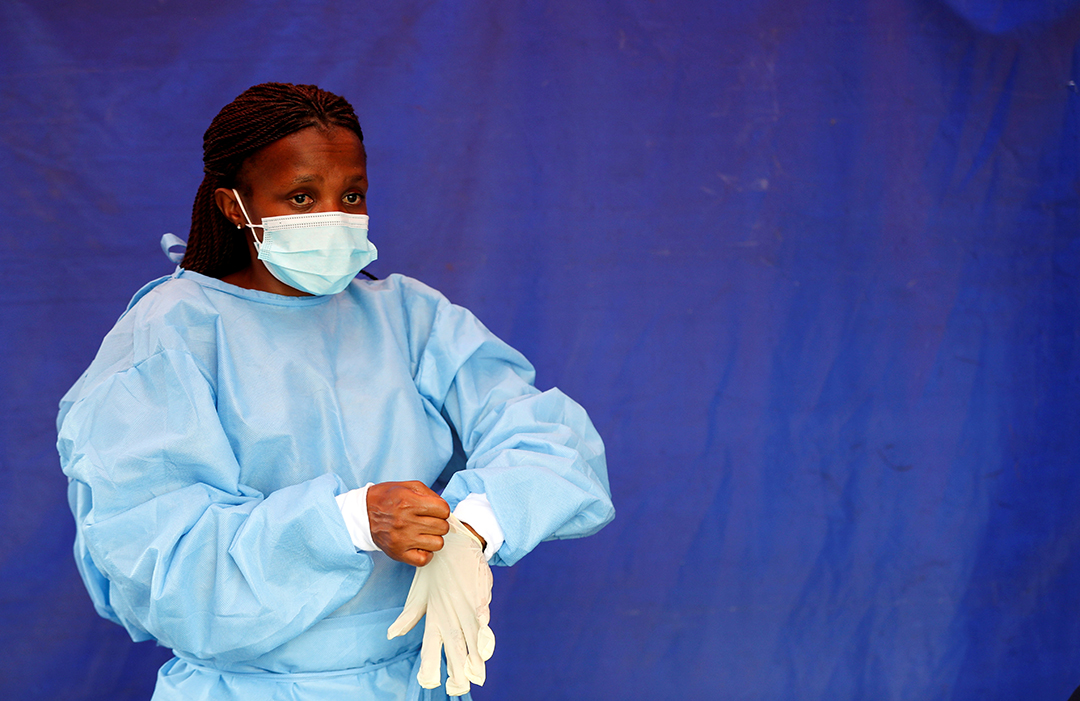World Continues to Study ‘African Paradox’
ADF STAFF
When the pandemic was declared in 2020, public health authorities feared mass infections could cause Africa’s health care systems to collapse.
Thirteen months later, this has not happened. There have been nearly 4 million confirmed cases of COVID-19 and more than 100,000 deaths on the continent, but the continent has avoided the worst-case scenario.
The number of deaths, while tragic, is a fraction of what other continents and some countries have experienced, despite Africa’s limited medical resources.
It is a phenomenon epidemiologists call “The Africa Paradox,” and they still struggle to explain it.
“When the virus finally found its way to Africa, some fatalities followed, but the expected catastrophe never occurred, even when the pandemic reached its first peak, plateaued, and then declined,” Dr. Yakubu Lawal of Nigeria wrote in his study, “Africa’s low COVID-19 mortality rate: A paradox?” published in the International Journal of Infectious Diseases in January 2021.
“It is currently rising again in some countries, though not as rapidly as before.”
One of the simple answers is that African countries have not conducted as much testing as other countries. About 37 million tests have been administered, reaching a small fraction of the continent’s 1.3 billion people.
A study, soon to be published in The British Medical Journal, that focused on testing 364 cadavers in Lusaka, Zambia, showed that 1 in 5 were infected. Most died before going to the hospital. None was previously tested.
“Are we counting all the deaths on the continent? No,” Dr. John Nkengasong, director of the Africa Centres for Disease Control and Prevention, told reporters in February. “But most people on the continent do know somebody who has died of COVID during this second wave.”
To explain Africa’s relative COVID-19 success, experts frequently cite lessons learned from outbreaks of diseases such as Ebola and HIV. Some countries such as Senegal and the Democratic Republic of the Congo were able to adapt existing operations centers, contract tracing protocols and community outreach efforts.
Many governments have been praised for quickly locking down borders and imposing restrictions. Most had time to prepare because so many of their citizens live far from airports where global travelers spread the virus early in 2020.
Other factors and theories include:
- Countries with younger populations tend to have fewer severe cases of COVID-19. Only 3% of the population in Sub-Saharan Africa is 65 or older. In the European Union, it’s 20%.
- COVID-19 can still spread in warmer weather, but the climate in Africa leads people to spend more time outdoors. Air conditioning is less prevalent, so windows are often open. There are fewer low-circulation and low-ventilation workplaces where infections can spread easily.
- Africa’s urban population, many of whom live in densely populated neighborhoods, may have been previously exposed to other coronaviruses and may have stronger immunity. “I would say that is at least a plausible explanation as to why there are different levels of resistance to the virus in different populations,” Thomas Scriba, an immunologist and deputy director of the South African Tuberculosis Vaccine Initiative, said to Reuters in 2020.
Lawal’s study concluded that Africa’s lower COVID-19 mortality rate is tied to the younger population, lower life expectancy, lower pre-pandemic mortality rate among those 65 and older, and “a smaller pool of people surviving and living with cardiovascular diseases.”
But the narrative of Africa’s success is shifting with the second wave’s rising mortality rate sparked by more-infectious variants.
“If anyone had told me one year ago that we as a continent within one year would be seeing 100,000 deaths from a new infection, I would probably not have believed that,” Nkengasong said to reporters. “But here we are in that scenario.”


Comments are closed.